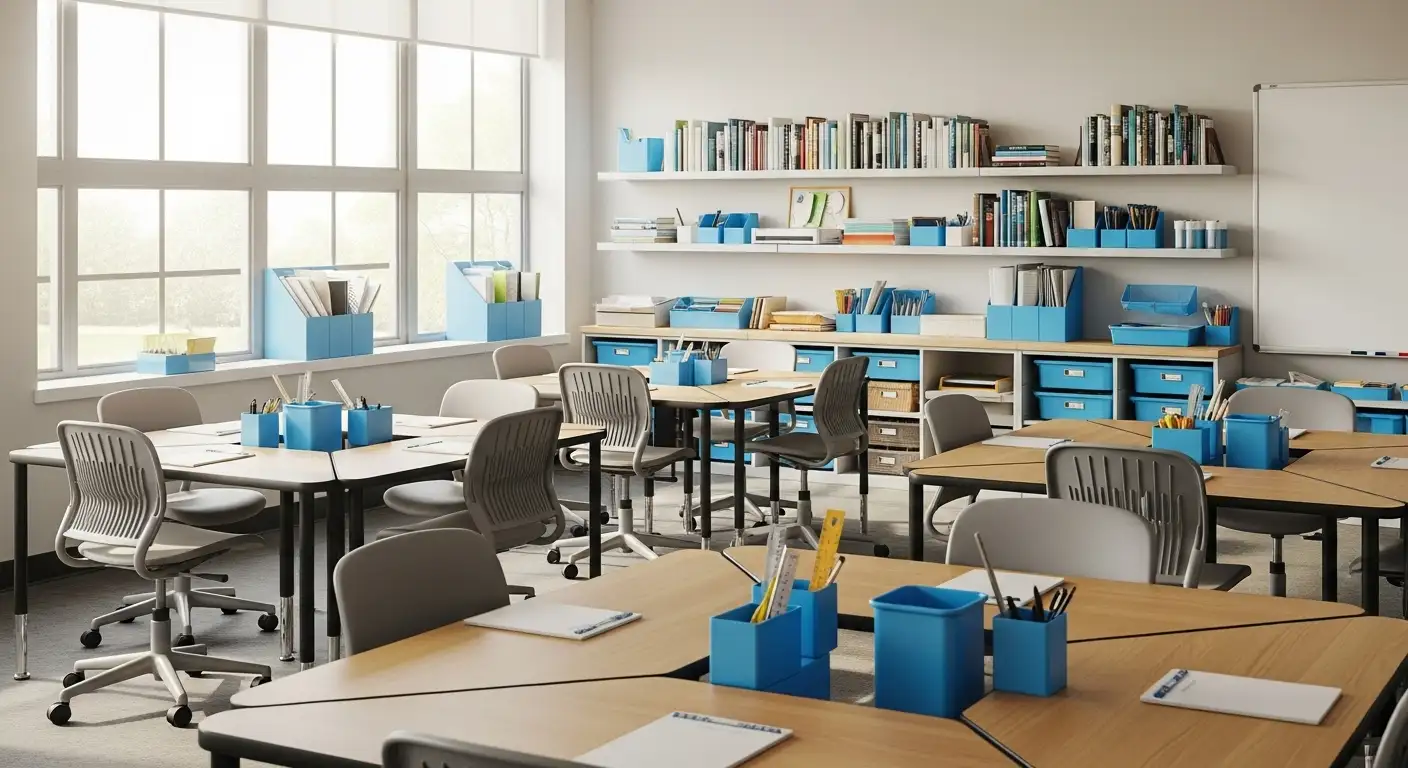The Role of Parents in ABA Interventions
Parent training in Applied Behavior Analysis (ABA) is paramount to the development and success of children with Autism Spectrum Disorder (ASD). Parental involvement ensures consistent implementation of therapeutic strategies across various environments, reinforcing learned behaviors and skills. In this article, we delve into effective techniques for parent training in ABA, providing insights and strategies to empower parents in their child's developmental journey.
Understanding Parent Training in ABA

What is parent training in ABA?
Parent training in Applied Behavior Analysis (ABA) is a process that teaches parents effective strategies to support their child's development, manage challenging behaviors, and enhance communication skills, particularly in children with autism spectrum disorder.
This training goes beyond just providing information; it focuses on teaching specific behavioral techniques, such as Positive Reinforcement and Discrete Trial Training, allowing parents to implement these strategies consistently in various settings.
Research shows that parent training is more effective than education alone, significantly reducing challenging behaviors and improving overall treatment outcomes for children. It also addresses the unique needs of families, taking into account their dynamics and values, while providing personalized plans for success. Ultimately, parent training fosters stronger parent-child relationships, reducing stress for parents and promoting the child's independence and long-term development.
Key techniques and strategies used
Several techniques and strategies are fundamental to ABA parent training:
- Positive Reinforcement: Rewarding desirable behaviors encourages their continuation.
- Discrete Trial Training (DTT): Involves clear instructions to elicit desired responses gradually nurturing independence.
- Visual Supports: Helping children understand expectations through visual stimuli like schedules or charts.
- Natural Environment Teaching: Using real-life situations to practice skills, enhancing engagement.
- Task Analysis: Breaking down complex tasks into manageable steps for easier learning.
- Social Stories: These assist children in visualizing expectations and situations, thus reducing anxiety.
Impact on long-term child development
Parent training significantly influences long-term child development by:
- Fostering independence in daily living skills among children.
- Improving communication skills, making interactions smoother.
- Enhancing compliance with routines and instructions.
- Reinforcing social skills through real-life applications.
- Encouraging generalization of skills across different contexts, ensuring that behaviors are maintained and naturally expressed over time.
In summary, effective parent training empowers families while contributing to consistent and supportive environments for children's ongoing development.
The Crucial Role of Parent Involvement

What is the importance of parent involvement in ABA therapies?
Parent involvement in ABA therapies is vital for ensuring the consistent application of strategies, facilitating skill generalization across different environments, and enhancing the child's overall development.
Research indicates that when parents actively participate in their child's therapy, they can significantly improve outcomes, including cognitive and developmental skills. High levels of parental involvement often lead to:
- Better Success in Generalization: Children are more likely to apply learned behaviors in various settings.
- Enhanced Therapeutic Progress: Empowered by training, parents can reinforce strategies at home, ensuring that these skills continue to develop.
- Improved Confidence for Parents: By mastering techniques, parents reduce their own stress, positively impacting their child's experience.
Conversely, a lack of involvement can hinder a child's progress. Collaboration between parents and ABA therapists is essential for achieving meaningful, lasting results for children with autism spectrum disorder.
Research Supporting Parent Involvement
Numerous studies support the efficacy of parent training in enhancing outcomes for children undergoing ABA therapy. A review of literature reveals that:
- Improved child outcomes correspond with increased parental training and consistent strategy implementation.
- Parents equipped with ABA techniques can address challenging behaviors more effectively, leading to reduced reliance on additional professional hours.
Improvement in Developmental Skills through Parental Engagement
Active participation in therapy fosters stronger parent-child relationships, leading to:
- Better Communication: Open dialogues about behaviors enhance understanding and adherence to strategies.
- Skill Retention: Parents help maintain and reinforce skills learned in therapy, promoting their child's independence.
- Celebrating Successes Together: Recognizing small victories keeps the family motivated and committed to the therapeutic process.
In summary, the integration of parent involvement into ABA therapy is crucial for maximizing the positive developmental impact on children.
Exploring Parent Training Interventions

What are parent training interventions for autism?
Parent training interventions for autism comprise a range of strategies designed to enhance parent-child relationships and support children with autism spectrum disorder (ASD). These interventions can be divided into two categories:
- Parent Support: This includes care coordination, psychoeducation, and resources for parents to better understand autism.
- Parent-Mediated Interventions (PMIs): Here, parents actively participate in their child's skill development, employing techniques learned in training.
Engagement in these methods can lead to several benefits, such as:
- Reducing behavioral issues
- Enhancing communication and social skills
- Improving parental mental health and confidence
Components of effective parent training programs
To maximize the impact of parent training, several key components should be present:
- Practical Training Sessions: Engaging parents through real-life applications ensures that they can readily implement strategies at home.
- Role Playing: This technique allows parents to practice new skills in a safe environment, reinforcing learning and providing confidence.
- Follow-Up Discussions: Regular check-ins can help parents refine their approach and address any challenges they face.
Evidence supporting different interventions
Research robustly supports the effectiveness of parent training interventions. Studies demonstrate that families using these techniques experience:
- Enhanced child behavioral outcomes
- Improved family interactions
- Better communication between parents and therapists
Such evidence underscores the necessity of equipping parents with the skills and knowledge to effectively support their children’s developmental needs, resulting in long-term positive changes for both the children and their families.
Techniques for Effective Parent Training in ABA

What are some effective parent training techniques in ABA?
Effective parent training in Applied Behavior Analysis (ABA) encompasses various strategies that enable parents to take active roles in supporting their child’s development. One fundamental approach is Behavioral Skills Training (BST). This method ensures parents can learn and apply critical skills for managing challenging behaviors through a structured, hands-on experience.
Role-Playing and Practice: A key element of BST involves role-playing. Parents practice scenarios that may arise in daily life, fostering confidence in their responses and techniques. This practical approach makes applying learned strategies feel more accessible and less overwhelming.
Data Collection: Monitoring progress is essential. Simple data collection methods, like using tally marks to track behavioral frequency, help parents observe improvements over time without the complexity of professional data tools. This practice reinforces positive behaviors and allows for adjustments in strategies as necessary.
Customization of Strategies: Tailoring training to a family's unique needs is crucial. This includes assessing family dynamics, skill levels, and barriers that could hinder the implementation of behavior plans. Custom plans like using visual schedules or social stories prepare children for transitions, helping to elicit desired responses effectively.
By fostering a collaborative partnership with parents, these techniques ultimately lead to enhanced outcomes for children involved in ABA therapy.
Equipping Parents to Implement ABA Strategies
How can parents be trained to implement ABA strategies?
Training parents to implement Applied Behavior Analysis (ABA) strategies involves a comprehensive approach designed to empower families. This process commonly incorporates direct coaching, where parents receive hands-on guidance from Board-Certified Behavior Analysts (BCBAs) or Assistant Behavior Analysts (BCaBAs). Through techniques like Behavior Skills Training (BST), parents engage in modeling behaviors and role-playing scenarios, ensuring a deep understanding of practical applications.
Parents learn to employ proactive strategies, such as using visual schedules and timers, effectively preparing their children for transitions. These tools help reduce anxiety by providing a clear roadmap of daily activities. Additionally, positive reinforcement techniques are emphasized—rewarding desired behaviors reinforces compliance and promotes skill acquisition, crucial in the journey of supporting children with autism.
Ongoing support is vital; it includes monitoring progress, adjusting strategies as needed, and celebrating small successes to maintain motivation. By embracing the skills learned through structured training, parents can create a nurturing environment that fosters their child's development. Not only does this strengthen the family dynamic, but it also enhances the child's overall therapeutic outcomes, ensuring a holistic approach to managing behaviors.
Resources for Enhancing ABA Parent Training
What resources are available for ABA parent training?
There are numerous resources available to support ABA parent training, designed to enhance the skills and confidence of parents. One prominent option is a one-year ABA Parent Training curriculum, which includes seven specific lesson plans. These plans cover essential topics such as the initial interview process, training goals, and fundamental ABA principles. For a more visual approach, the curriculum offers a '7 Steps Parent Training PowerPoint', making it easier for parents to grasp effective ABA strategies.
Another comprehensive resource is the ACHIEVE Parent Training Curriculum, which boasts 26 lessons along with accompanying homework assignments and quizzes. This structured format reinforces learning and ensures that parents can integrate strategies into their home life effectively. Research has shown that parent training can significantly decrease challenging behaviors, making these training resources impactful for improving family dynamics and reducing stress.
Benefits of online courses and workshops
Online platforms are increasingly providing flexible learning opportunities for parents interested in ABA training. Programs like RUBI, ABA Visualized, and Master ABA offer courses that cater to different learning paces and styles. These courses not only provide valuable knowledge but also foster community support among parents navigating similar challenges.
Impact of structured programs on family dynamics
Structured ABA parent training programs greatly enhance communication and understanding within families. By equipping parents with practical strategies, these programs empower families to manage behaviors more effectively and create a supportive home environment. As parents gain skills and confidence in using ABA techniques, they contribute to lasting positive changes in their child's behavior and the overall family dynamic.
Where to Find ABA Parent Training Materials
Where can I find ABA parent training materials?
You can find ABA parent training materials through a variety of online resources and organizations focused on Autism Spectrum Disorder (ASD). One of the primary resources includes the Association for Behavior Analysis International, which provides educational materials and links to training. Additionally, the Autism Society often offers comprehensive resources tailored for parents.
What types of materials are available?
There are many online courses and workshops that cover essential principles of Applied Behavior Analysis (ABA), such as Discrete Trial Training and Natural Environment Teaching. These courses often provide practical strategies that are essential for parents.
Printed materials and PDFs can also be valuable; they typically cover foundational concepts, including baseline data collection and defining behaviors in measurable terms. Look for resources that include interactive elements like quizzes and exercises to reinforce your learning.
Why is it important to use comprehensive materials?
Using comprehensive materials is crucial for effectively understanding and implementing ABA techniques at home. Such resources help parents to become familiar with behavioral concepts, leading to a better grasp of how to apply what they’ve learned in real-life situations, which is essential for their child’s development.
Implementing ABA Strategies at Home: Tips and Techniques
Using Positive Reinforcement and Consistency
Positive reinforcement is a cornerstone of ABA strategies, emphasizing the need to reward desired behaviors rather than focus on what children should not do. This could involve giving praise, small treats, or tokens that children can exchange for preferred activities. Consistency is vital; parents should maintain the same reward systems across different settings, ensuring children know what to expect and understand that their actions have predictable outcomes.
Importance of Communication and Modeling Behavior
Effective communication is achieved through active listening and encouraging children to express their needs. Parents can also use visual supports such as charts and schedules, which help children clarify expectations. Modeling desired behaviors is essential, enabling children to learn through direct observation. For example, when a parent demonstrates patience or proper communication, children are more likely to imitate these behaviors.
Utilizing Pragmatic Approaches
To enhance the effectiveness of ABA at home, parents can implement strategies like the Picture Exchange Communication System (PECS) to assist non-verbal children in expressing their needs. Additionally, proactive methods such as visual schedules and timers can help children cope with transitions, while social stories allow them to visualize and prepare for new experiences. Engaging parents in behavior analysis allows them to track progress systematically, providing feedback and contributing to their child's growth.
Celebrating Success: The Journey of ABA Parent Training

Acknowledging Small Successes
Recognizing and celebrating small victories is vital in the journey of ABA parent training. Each achievement, no matter how minor, helps build confidence in both parents and children. Celebrations can be as simple as verbal affirmations or small rewards. These moments of recognition reinforce the efforts made and promote a positive learning environment.
Maintaining Motivation and Commitment
Keeping motivation high throughout the training process is essential for long-term commitment. Parents who recognize their child's progress are more likely to remain engaged with the techniques taught. Celebrating achievements not only boosts morale but also encourages a collaborative atmosphere between parents and therapists, promoting sustained adherence to strategies learned in therapy.
Positive Outcomes for Child and Family Dynamics
The impact of effective ABA parent training extends beyond the individual child. By empowering parents, families experience enhanced communication and understanding, leading to improved dynamics overall. As parents become more skilled in managing challenging behaviors, they foster a more harmonious home environment. Positive reinforcement strategies, such as those used to celebrate achievements, contribute to improved behavior and emotional health for both children and their families.
| Aspect | Importance | Benefits |
|---|---|---|
| Acknowledgment | Validates efforts and progress | Increases motivation and engagement |
| Motivation | Essential for ongoing commitment | Ensures strategies are followed consistently |
| Family Dynamics | Enhances communication & understanding | Leads to healthier relationships |
Empowering Parents for Successful ABA Interventions
Parent training in ABA is an invaluable tool not only for the child's developmental progress but also for fostering a nurturing and supportive environment at home. By equipping parents with effective strategies, tools, and resources, ABA therapy becomes more accessible and manageable, leading to significant improvements in family dynamics and child outcomes. As parents gain confidence and knowledge, they play a pivotal role in their child's ongoing journey toward independence and success. With continuous support, resources, and collaboration between parents and professionals, the benefits of ABA therapy can be maximized, paving the way for lasting positive changes.
References
- What are ABA Teaching Strategies for Parents?
- ABA Education for Parents: 7 Steps to Coach Parents in ABA
- 10 Steps for Effective ABA Parent Training - CentralReach
- At-Home ABA Therapy Techniques for Parents | Heartlinks
- 10 Tips for Providing Better ABA Parent Training
- Parent training interventions to applied behavior analysis (ABA).
- Effective ABA Parent Training - Brady Behavioral Analysis
- 6 Must - Teach Topics in ABA Parent Training: Be Sure to Cover ...
- The Role of Parent Training in ABA /Aim Higher ABA
- Parent Training in Applied Behavior Analysis Treatment








